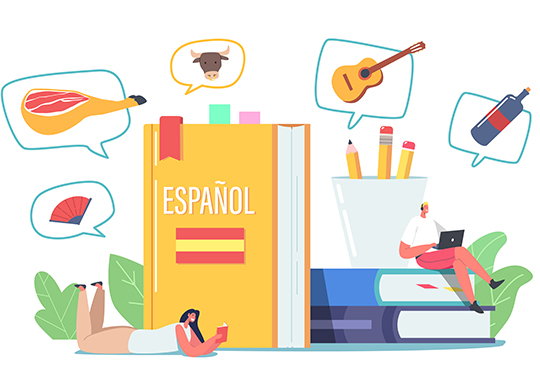
Any teacher of Spanish as a Foreign Language constantly hears the same phrases in the mouth of many of our students: "Spanish is very difficult, I will never learn it", "Verbs in Spanish are very difficult", "It is impossible to understand and use the subjunctive", etc.
When your students give you these comments, you think Spanish is just as difficult, or easy, as many of their native languages. It always depends on the perspective we take. If we think of students from Asian countries or Eastern European countries, who do not even share the alphabet with us, of course it is difficult. This group must begin by changing its mental scheme and include in it an alphabet and a totally different phonological system and that, in many cases, has sounds that are not in its language or which, if found, are not exactly the same. This is the case, for example, with the sound of the single vibrator/人/and the multiple vibrator/r/. This difficulty also appears in grammar. For example, this group of students encounters many difficulties when they have to use verbal conjugation because it does not exist in their native language. In Chinese they mark the time by adding a word (yesterday, today...) to indicate this.
If we think of students from countries that have a romance language like ours, it is much simpler, although not always. Often, as teachers we find students with Romance mother tongue (Italian, French, Portuguese, etc.) who understand, practically, everything they hear. The problem appears when they have to use Spanish (written or oral). How many times have you encountered students who think they are speaking in Spanish, but are actually using a mixture of the two languages? I'm sure this has happened to you many times. The biggest problem for this group is that their language is so similar to ours that they can't tell which of the two they are using. This linguistic interference appears especially when they are starting to study our language and, as teachers, we must help them to become aware of these differences so that their learning is really significant.
If we think of students whose mother tongue is of Germanic root, the difficulties are different. The first problem they face is phonetic. In Spanish we have 5 vowels, in this language group the number of vowels is much greater and, in addition, there are elements such as the German "umlaut" (¨) that changes the sound of a vowel. Also, if we talk about grammar, this group of students faces a big drawback: the subjunctive. This subjunctive is the Spanish "monster" for people who decide to study it.
We could continue to give examples like the previous ones, but we would continue to add difficulties or problems that each person who studies Spanish will encounter throughout their learning.
We started this post with a question: is it really hard to learn Spanish? I do not think there is a single answer. Actually, there are as many answers as there are language learners, just like if we ask ourselves, is it difficult to learn German, English, Chinese, Italian ...? Each language has its own peculiarities and each student its own characteristics. Our role as teachers is to accompany them on their journey, guide them and help them to make their learning meaningful.















